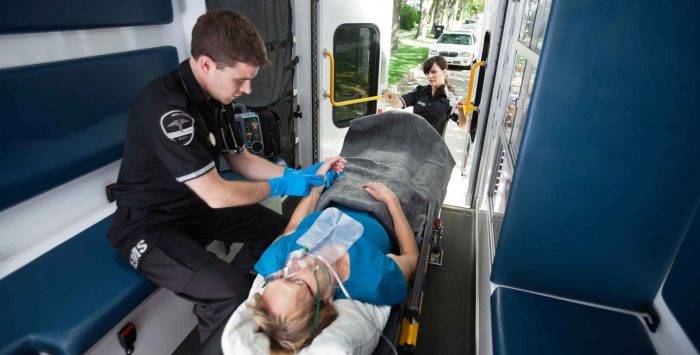Welcome to Medicare Heads Up, a regular feature intended to deliver state and national Medicare-related headlines that will keep consumers abreast of developments that affect their coverage and costs. This week:
Court ruling will let Medicare patients appeal for denied skilled nursing facility care
A federal judge’s ruling will allow thousands of Medicare beneficiaries to challenge denials of skilled nursing facility (SNF) care.
Original Medicare normally only covers SNF stays for patients who stay at least three days in the hospital while classified as an inpatient. Many of these individuals will need SNF care to recover.
Sometimes, hospitals admit a person as an inpatient and later reclassify them to “observation status,” which means their stay is billed under Part B instead of Part A, and they’ll owe an uncapped 20% coinsurance for their hospitalization. (Part A stays would have a fixed $1,408 deductible). These costs are in addition to potentially expensive SNF care, which Medicare won’t cover without a qualifying inpatient Part A stay. (Most Medicare Advantage plans don’t require a three-day stay before covering SNF care.)
You can usually appeal when Medicare won’t cover your care, but SNF stays have been an exception to this rule. The judge’s ruling changes things by allowing patients to appeal their “observation” status if they were hospitalized on or after January 1, 2009, were treated for at least three days, and a portion of that was classified as “observation” care. (Patients who only had Part A can appeal regardless of their length of hospital stay, as can those for whom more than 30 days passed between the hospital visit and admission to a SNF.) The Department of Health and Human Services hasn’t said whether it intends to appeal the ruling.
(Medicare’s three-day inpatient stay requirement for SNF coverage is waived during the coronavirus crisis.)
CMS expands Medicare telehealth in response to coronavirus
Medicare beneficiaries may be wondering how to manage health issues without risking exposure to coronavirus. The good news is the Centers for Medicare and Medicaid Services (CMS) has significantly expanded Medicare’s telehealth coverage due to the pandemic.
Original Medicare is temporarily reimbursing medical office visits occurring through telehealth at in-person rates, meaning even more providers will offer these services. Your doctor can even visit with you by phone and Medicare will cover it like an office visit. Other office services like mental health counseling are also available, and providers can care for patients using non-traditional conferencing services like FaceTime and Skype.
Due to the emergency, Original Medicare is covering telehealth-based emergency room care, urgent care, aspects of hospital visits, and certain medical services related to skilled nursing facility and home healthcare. You may be worried about your costs if you need care during the pandemic. The good news is that CMS is allowing providers to waive Medicare cost sharing for telehealth visits.
Medicare Advantage plans already covered the same telehealth services that Original Medicare did before the pandemic. CMS has encouraged Advantage insurers to cover additional benefits due to coronavirus, and many have done so.
Medicare temporarily covers ambulance rides to more destinations
Medicare historically only covered ambulance transportation to an emergency room or SNF. This may be concerning to Medicare beneficiaries with critical health concerns who fear contracting the coronavirus in an emergency department. Many hospitals have responded to concern about infection by opening offsite facilities or creating separate wings for coronavirus patients.
To ensure Medicare beneficiaries are treated in the safest setting, Medicare will temporarily cover ambulance transportation to a number of additional destinations besides emergency rooms. These include offsite hospital branches, community mental health centers, physicians’ offices and urgent care facilities, as long as those locations are equipped to treat the patient’s condition under local EMS protocols (the regulation is on page 168 here).
Existing criteria for Medicare coverage still apply, including that Medicare still only pays for limited types of “non-emergency” ambulance transportation – something usually covered only for people whose medical conditions don’t allow them to get out of bed. Medicare Advantage plans have some discretion over which ambulance rides they cover.
During the crisis, it’s a good idea to call ahead to the emergency room or your doctor’s office before seeking care.
Study finds Medicare beneficiaries struggle to pay bills
A Kaiser Family Foundation (KFF) study found many Medicare beneficiaries struggle to access care due to its costs – regardless of the type of Medicare coverage they had. KFF found that in 2017, one in six beneficiaries overall had trouble accessing care due to its cost or because of medical bills. That number increased to one in four people for those with incomes below $20,000. More people with Medicare Advantage struggled to get care due to costs or paying bills compared to people with Original Medicare (20% versus 15%), even when KFF adjusted for income and health status.
For low-income Medicare beneficiaries, Medicare Savings Programs (MSPs) are available to help with premiums and cost sharing, and some beneficiaries will qualify for additional Medicaid benefits. It’s also important to carefully choose your Medicare coverage so it fits your needs.
CMS is paying hospitals, medical providers in advance
Some fear that hospitals and medical practices could be forced to close their doors due to financial strain from the coronavirus. Many patients are staying home and delaying medical care, and not all care we usually receive in-person can be delivered through telemedicine. In addition, hospitals make a significant portion of their income from elective procedures that are now cancelled.
Congress has so far approved $100 billion in aid to hospitals in the CARES Act, but has yet to pass legislation helping independent medical practices. CMS is responding by allowing Original Medicare providers to request payments in advance based on their historical fee-for-service income during the October to December 2019 period. We aren’t aware of which Medicare Advantage plans are making advanced provider payments, although some people are encouraging this.
Medical practices can receive three months of advance payments, while hospitals are allowed to request six months. Providers will have to return the funds four months after receiving them.
Josh Schultz has a strong background in Medicare and the Affordable Care Act. He managed a Medicare ombudsman contract at the Medicare Rights Center in New York City, and represented clients in extensive Medicare claims and appeals. In addition to advocacy work, Josh helped implement federal and state health insurance exchanges at the technology firm hCentive. He also has held consulting roles, including as an associate at Sachs Policy Group, where he worked with insurer, hospital and technology clients on Medicare and Medicaid issues.
Tags: ambulance, Medicare Heads Up, Original Medicare, skilled nursing care, telehealth


